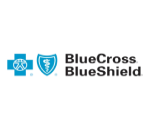801 Garden St. Suite 101 Santa Barbara, CA 93101
Drug and Alcohol Detox Facility in Santa Barbara
Start your journey
Behavioral therapy is a widely used approach within addiction treatment for addiction and alcoholism, as it focuses on changing behaviors and thought patterns that contribute to substance abuse. Family members play a crucial role in the recovery process, providing support and encouragement throughout addiction treatment. Behavioral therapy can be effective on its own or in combination with medication-assisted treatment and can help individuals achieve long-term recovery and improve their overall quality of life.
Our Santa Barbara, California drug and alcohol addiction treatment center offers counseling and psychotherapy services to help our patients find freedom. Our team is dedicated to providing education and resources along with treatment programs for those who wish to overcome addiction and co-occurring mental health struggles.
We know that recovering from addiction is more than just a matter of abstinence. Treatment should also address the underlying causes of addiction, which can include trauma, anxiety, depression, family history of addiction, stress, and more. This is why we offer comprehensive counseling services for drug and alcohol addiction.
OUR TREATMENTS
Treatment for co-occurring disorders, also called dual diagnosis, addresses both conditions at the same time. Addiction can change the way that people think, feel, and act, while mental illness is often overlooked when treating people with drug or alcohol use disorders.
Understanding the connection between mental health and addiction is an important element of recovery here at Santa Barbara Recovery. Our aftercare program and licensed therapists help you explore mood disorders and addictive behavior, understand how they are entwined, find treatment, and take steps toward healing.
Individual therapy for addiction is a personalized therapeutic approach that focuses on the unique needs and challenges of the person struggling with substance abuse. In one-on-one sessions with a trained therapist, individuals can focus on and explore the root causes of their addiction, such as trauma, stress, or mental health issues, in a safe and confidential setting. One-on-one counseling allows for a tailored treatment plan that addresses specific triggers and develops strategies to manage cravings and avoid relapsing. It provides a safe space for the improvement of personal growth, low self-esteem, communication skills, and more. Through techniques such as cognitive behavioral approaches and mindfulness exercises, individuals can gain insights into their behaviors, build self-awareness, and develop healthier ways of thinking and living. Individual therapy provides a strong foundation for recovery by empowering individuals to take control of their lives, set personal goals, and work toward long-term sobriety.
Group therapy for substance abuse is a therapeutic approach where individuals struggling with substance abuse come together in a supportive and structured environment to share their experiences and work toward recovery. In these sessions, facilitated by a trained therapist, participants can openly discuss their challenges, successes, and fears, fostering a sense of community and mutual understanding.
Group therapy provides a unique opportunity for individuals to gain insights from others who are facing similar struggles, offering different perspectives and strategies for managing addiction. It also helps reduce feelings of isolation and stigma, as members realize they are not alone in their journey. The shared experience and collective wisdom of the group can enhance motivation, build accountability, and provide emotional support, all of which are crucial for successful recovery.
This collaborative process and empathetic environment empower individuals to develop healthier relationships and coping mechanisms, ultimately strengthening their resolve to maintain sobriety.
Family therapy for addiction is a therapeutic approach that involves the entire family in the recovery process of a loved one struggling with substance abuse. This form of therapy recognizes that addiction affects not just the individual but also their family members, and it seeks to address the complex dynamics and relationships within the family unit. By involving family members in therapy sessions, families can learn about addiction, improve communication, and develop healthier ways of interacting.
Family counseling helps to identify and resolve underlying issues that may contribute to addictive and harmful actions, such as trauma, enabling, or co-dependency. Additionally, it provides a supportive environment where family members can express their feelings, set boundaries, and strengthen their emotional bonds. This collaborative approach enhances the chances of successful recovery for the individual with addiction while promoting healing and resilience within the entire family.
Cognitive behavioral therapy (CBT) is one of the various therapeutic techniques used in addiction therapy that focuses on identifying and changing negative thought patterns. In CBT, individuals work with a therapist to identify triggers for substance use, develop coping techniques to manage cravings and learn strategies for managing stress and anxiety.
CBT is a structured, short-term therapy that typically lasts for 12-16 sessions. The therapist and individual work collaboratively to set goals, track progress, and develop strategies for maintaining sobriety.
Dialectical behavior therapy (DBT) for substance abuse is a type of therapy that combines elements of CBT with mindfulness and acceptance-based strategies. DBT is particularly effective for individuals with co-occurring disorders, such as substance abuse and mental health issues. This type of therapy is particularly effective for individuals who struggle with emotional regulation, as it helps individuals learn how to tolerate distressing emotions without turning to drugs or alcohol. In DBT, individuals work with a therapist to develop mindfulness skills, interpersonal effectiveness skills, emotional regulation skills, and distress tolerance skills. DBT is typically delivered in a group setting, although individual therapy may also be used.
Contingency management (CM) for substance abuse is a type of therapy that uses positive reinforcement to encourage sobriety. CM can be complemented by support groups, which provide additional support and encouragement for individuals in therapy. In CM, individuals receive rewards or incentives for abstaining from drugs or alcohol or for achieving other treatment goals.
Contingency management is effective in improving treatment outcomes, particularly in combination with other forms of therapy. CM can be delivered in a variety of settings, including outpatient clinics, residential treatment centers, and drug courts.
Experiential therapy for addiction is a therapeutic approach that involves engaging individuals in activities and experiences that help them process emotions, develop coping skills, and gain insights into their addictive behaviors.
Unlike traditional talk therapy, experiential therapy incorporates hands-on activities such as art, music, role-playing, and outdoor adventures. These activities allow individuals to express themselves in non-verbal ways, often revealing underlying issues that contribute to their addiction. By participating in these immersive experiences, individuals can confront and address emotional pain, build self-esteem, and develop healthier ways of relating to themselves and others.
Here at Santa Barbara Recovery, we offer outdoor therapy, which enables our patients to engage in wonderful outdoor activities such as:
1. Gym/Strength Training
2. Hiking
3. Surfing
4. Kayaking
5. Swimming
6. Mountain Biking
7. Sober Softball League
8. Fishing
9. Pickleball
10. Basketball
We also offer yoga therapy and meditation therapy. Our holistic approach can be particularly effective in helping individuals break free from the cycle of addiction and build a foundation for long-term sobriety.
Motivational interviewing (MI) is a type of therapy that focuses on increasing an individual’s motivation to change their behavior. In MI, the therapist works with the individual to identify the pros and cons of substance abuse, develop a change plan, and build self-efficacy and confidence in their ability to make changes.
This therapy is a client-centered approach that is non-confrontational and non-judgmental. The therapist helps the individual to explore their ambivalence about drug or alcohol use and to identify their reasons for change.
Therapy plays a crucial role in the treatment of mental health issues and addiction. It provides a structured and supportive environment for individuals to explore and address the underlying causes of their struggles.
For mental health, therapy offers a safe space for individuals to express their thoughts and emotions, gain insights into their behaviors, and develop coping strategies to manage symptoms of conditions such as depression, anxiety, and PTSD. It fosters self-awareness, emotional regulation, and resilience, which are essential for overall well-being.
In addiction treatment, therapy helps individuals understand the root causes of their substance abuse, identify triggers, and develop healthier ways of coping with stress and cravings. It also addresses co-occurring mental health disorders, which are often intertwined with chemical dependency and substance use disorders.
Therapy also provides a supportive network, encouraging individuals to build strong, healthy relationships and a stable foundation for long-term recovery. Overall, therapy is indispensable in promoting mental health and helping people overcome alcohol and drug addiction, leading to a more fulfilling and balanced life.
Addiction therapy and counseling offer numerous benefits that are essential for individuals seeking to overcome substance use disorders and achieve long-term recovery. One of the primary benefits is the provision of a safe and confidential space where individuals can openly discuss their struggles and receive professional guidance. This therapeutic environment fosters self-awareness, helping individuals understand the root causes of their addictions and identify triggers that lead to drug or alcohol use.
Therapy also equips individuals with effective coping strategies to manage stress, cravings, and other challenges without resorting to substance abuse. Through various therapeutic approaches, individuals can develop healthier thought patterns and behaviors. Counseling sessions often include goal-setting and relapse prevention planning, which are crucial for maintaining sobriety.
Additionally, therapy provides emotional support and encouragement, helping individuals rebuild their self-esteem and confidence. Group therapy and support groups, as part of the counseling process, offer a sense of community and shared experience, reducing feelings of isolation in their lives.
Therapy plays a vital role in recovery by promoting positive changes, improving mental and emotional healing, enhancing self-efficacy, and fostering a supportive network that empowers individuals to lead a fulfilling, addiction-free life. With help from therapists, individuals can regain control of their lives and move forward in their treatment journey on the path to sobriety.
Behavioral therapies are highly effective in treating mental health and substance use disorders. Counseling can help individuals achieve long-term recovery and improve their overall quality of life. It is important to work with a qualified therapist or addiction specialist who can help determine which type of therapy best suits an individual’s needs and treatment goals.
If you or someone you know is suffering from chemical dependency, mental health challenges, or co-occurring disorders, reach out to our team here at Santa Barbara Recovery. We are dedicated to helping our patients overcome mental illness, alcoholism, and drug addiction. Our compassionate staff works to ensure our patients experience personal growth, positive change, and lifelong freedom.
Santa Barbara Recovery strives to address the overall health and well-being of each patient, working to provide the best rehabilitation services possible. So, let us support you on the journey to hope and healing. Contact us today.
Our Partners
We work with all major Out-of-Network Insurance Providers, Private Pay and Scholarship Opportunities. Drug and alcohol rehab should be accessible to everyone. At Santa Barbara Recovery, we work with most insurance plans to cover the costs of treatment.




